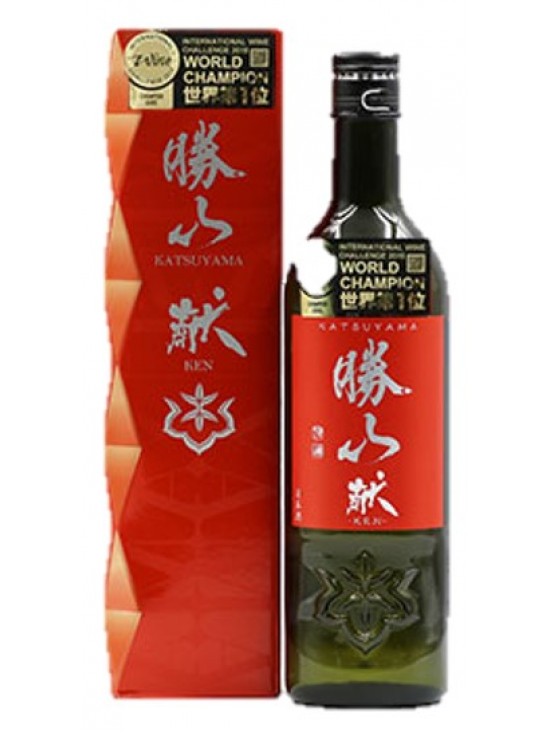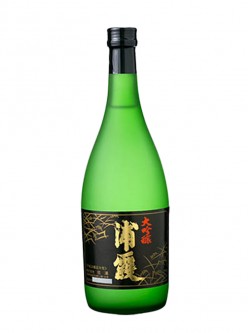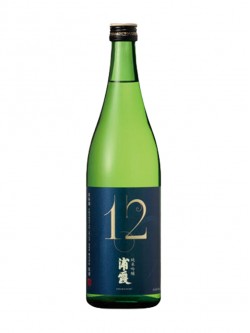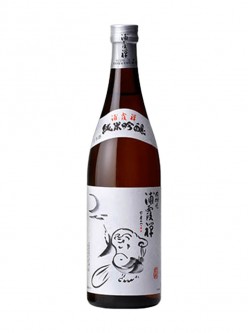Katsuyama Ken Junmai Ginjo

- Model: Katsuyama Ken Junmai Ginjo - 720ml
- SKU: J-SK-101
- Volumn: 720ml
- Alcohol Level: 16%
Tasting Notes
This elegant sake features a gentle, clean nose and smooth drinkability, with a flavor that expands into a soft and supple fullness. The superb balance of slightly dry and mild acid tastes and well-rounded aftertaste make it an excellent choice for meals prepared to bring out the best in carefully selected ingredients. It goes well with lightly flavored foods and also with seafood.
The name Ken means “to present something,” or a “wonderful gift.”
■KATSUYAMA “KEN” Champion Sake of IWC 2019. Chosen as No.1 Sake in the world.
Named “Champion Sake” at IWC Sake 2019—one of the world’s largest and most recognized sake competitions—an award denoting the world’s best sake in all categories out of 432 participating breweries worldwide and 1,500 entries.
KURA MASTER 2019
Received the Platinum Medal, the top award in the Junmai Ginjo and the Junmai Daiginjo category, at Kura Master 2019—a French sake competition with 720 entries judged by 93 of the country’s top sommeliers—making it the second year in a row to earn the award.
The U.S. National Sake Appraisal 2019
Won the Second Grand Prix award at the U.S. National Sake Appraisal in 2019—the oldest sake appraisal conducted outside Japan—for its high acclaim in the Ginjo category out of 204 participating breweries and 512 entries.
SAKE COMPETITION
Awarded first place in the Junmai Ginjo category in 2015 and 2016 and the second place gold award in 2017 at the Sake Competition—one of Japan’s largest competitions for commercially available sake.
1. What is sake?
Sake is an alcoholic drink made from fermented rice, the drink enjoys widespread popularity and is served at all types of restaurants and drinking establishments.
2. What is Junmai?
Junmai (纯米) is the Japanese word meaning “pure rice.” This is an important term in the world of sake, as it separates pure rice sake from non-pure rice sake. Additionally, the Junmai classification means that the rice used has been polished to at least 70 percent. Junmais have subdued aromas and richer body; ginjos, on the other hand, have more expressive aromas of fruit and floral notes, with a softer finish.
3. What is Junmai Daiginjo?
The Junmai Daiginjo (纯米大吟醸) category has the highest standards of milling rates in the sake market with a minimum of 50% rice polishing and 50% remaining. But that standard is often surpassed by brewers looking to push the rice milling envelope that results in sakes that can be milled down to 35% down to 23% and even 7% remaining figures. These Ultra and Uber Junmai Daiginjo all drink with an elegance and sophistication of flavors and complexities.
4. What is Ginjo?
Ginjo (吟醸) sakes have a minimum of 60% seimaibuai, or percentage of rice remaining after polishing. It contains a small amount of distilled brewers’ alcohol. Ginjos tend to be crowd pleasers: they are smooth, easy drinking, and have great balance.
5. What is Junmai Ginjo?
Junmai Ginjo (纯米吟醸) is premium sake that uses rice that has been polished to at least 60 percent. It is brewed using special yeast and fermentation techniques. The result is often a light, fruity, and complex flavor that is usually quite fragrant. It’s easy to drink and often (though certainly not as a rule) served chilled.
6. What is Tokubetsu Junmai?
Tokubetsu junmai ("special pure") is a special designation for high-quality sake, the indigenous and traditional rice wine that has become a strong symbol of Japan's national culture. To qualify as Tokubetsu Junmai, a sake must be made with rice polished to less than 60 percent of its original weight. It is prohibited to fortify Tokubetsu Junmai with distilled alcohol.
7. What is Honjozo?
Honjozo (本醸造) also uses rice that has been polished to at least 70 percent (as with junmai). However, honjozo, by definition, contains a small amount of distilled brewers alcohol, which is added to smooth out the flavor and aroma of the sake. Honjozo sakes are often light and easy to drink, and can be enjoyed both warm or chilled.
8. What is Special sake?
Sake can be made in different fashions to produce more variations of sake aparts from the six major categoies of Sake. Special Sake includes Nama, Koshu, Kijoshu, Sparkling, Genshu, Nigori, Taru, Fruity sakes and etc
9. What is Fruity sake?
A mixture of fruit or fruit juice added into sake to create cleanest and freshest of flavours. This is a rather popular form of the drink. It includes fruits flavors such as apple, cherry and raspberry. It is sweet and fruity and ideal for mixing cocktails.




